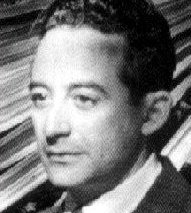Xavier Villaurrutia facts for kids
Xavier Villaurrutia was a famous Mexican writer. He was a poet, wrote plays, and also reviewed books. He lived from 1903 to 1950. Some of his best-known works are short plays called Autos profanos, which were collected in a book called Poesía y teatro completos in 1953.
Early Life and Studies
Xavier Villaurrutia was born in Mexico City in 1903. He went to important schools there, including the National Preparatory School. He loved writing so much that he decided to become a writer.
In 1928, he joined a group of writers called the Contemporaries. Later, in 1935, he received a special scholarship to study theatre at Yale University in the United States. When he came back to Mexico in 1937, he started working for a local newspaper called Letras de Mexico. Villaurrutia also helped start the first experimental theater in Mexico.
He also helped create a magazine called Ulises in 1927, along with another writer named Salvador Novo.
His Writings
Villaurrutia wrote many poems. His first poetry book was Reflejos in 1926, followed by Nocturnos in 1933.
Later, his poems became a bit more serious. These included Nostalgia de la muerte (which means "Nostalgia of death") in 1938, and Décima muerte (meaning "tenth death") in 1941. It's not fully clear why his writing changed, but it might have been because of the difficult times in Europe before World War II.
One of his plays from 1941 was called Invitación à la muerte, which means "Invitation to death." After he passed away, a collection of his works, including his short plays Autos profanos, was published in 1953. An American writer named Eliot Weinberger translated Nostalgia de la muerte into English.
His Impact
Xavier Villaurrutia had a big impact on many other poets, including Octavio Paz, who was one of his students, and Alí Chumacero.
Since 1955, there has been a special award named after him, the Xavier Villaurrutia Award. This award is given to important literary works published in Mexico. A group of writers chooses the winner. Since 1991, the award has been supported by the Consejo Nacional para la Cultura y las Artes, a national council for culture and arts.
Links
- Information about Xavier Villaurrutia
See also
 In Spanish: Xavier Villaurrutia para niños
In Spanish: Xavier Villaurrutia para niños
 | Audre Lorde |
 | John Berry Meachum |
 | Ferdinand Lee Barnett |


